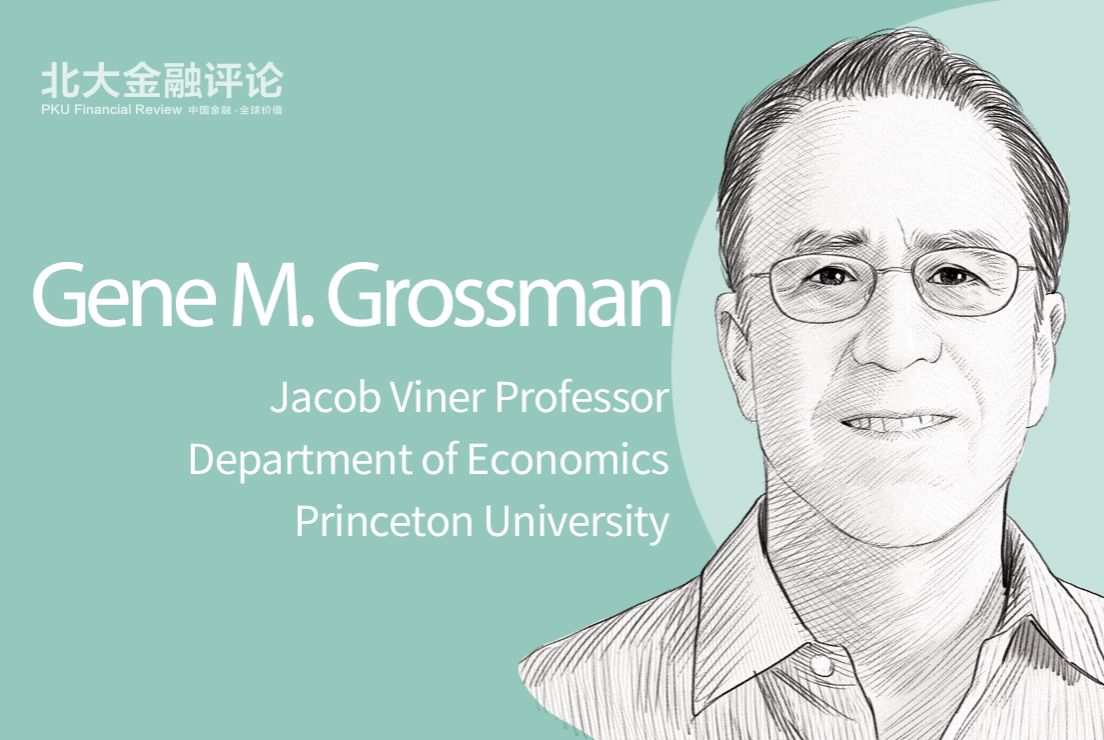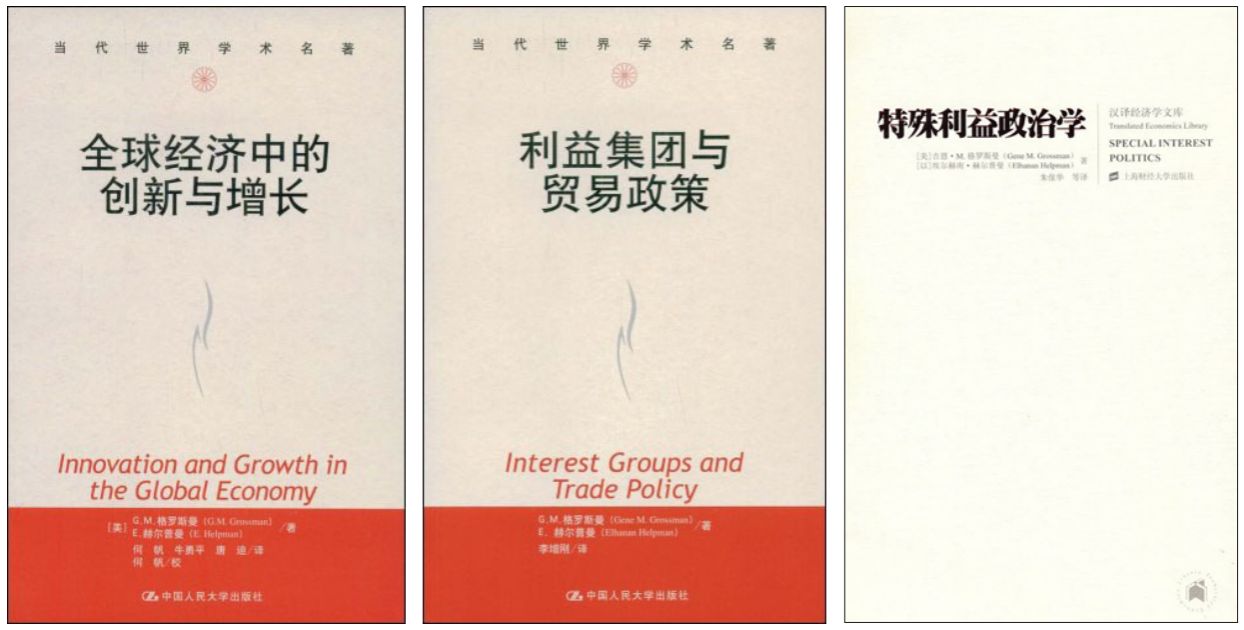PKU Financial Review: In your book "Innovation and Growth in the Global Economy," you explore the impact of technological innovation on economic growth. The global economy currently faces many challenges, such as supply chain disruptions and technological barriers. How do you think these factors are affecting global innovation and growth?
Gene M. Grossman:It is too soon to see any effects of the retreat from globalization on global innovation or growth. But if current trends continue, the outlook is not good. Innovation relies heavily on the free exchange of ideas, and international spillovers of knowledge have been an important contributing factor to innovation and growth everyone. The rising impedements to trade in goods and services, and especially to the free mobility of people, is bound to have a chilling effect on innovation. The United States, for example, has benefitted enormously from the inflow of talent from countries like India and China. As visas become more scarce, so will access to these skilled individuals, and all the talent and ideas they carry.

PKU Financial Review: In your paper "Protection for Sale" co-authored with Elhanan Helpman, you discuss the impact of tariffs on different industries. According to your research, which industries are most likely to be affected by high tariffs? How should these industries respond?
Gene M. Grossman:Our paper modeled a world in which levels of protection were determined by, among other things, the political efforts of industries. Our paper considered which industries had the greatest incentive to lobby for protection and which had the best chance of “buying” that protection from governments eager for their campaign contributions. That is not the world we live in right now. Current protection is driven by one person’s belief that trade is a zero-sum game and that winning and losing is revealed by bilateral trade deficits. The tariff formula released on “Liberation Day” did not distinguish tariffs by industry, but rather by source country – and those tariffs were determined by the size of the US trade deficit with the country in goods alone (not services). The implied support for particular industries was purely incidental.
That does not mean that the forces identified in “Protection for Sale” will play no role in the coming months and years. If the United States returns to the tariffs announced in April and temporarily suspended soon thereafter, there will be many exemptions and exceptions. We already saw some of that in the days after the announcement and before the suspension. Which industries will win special treatment? I would guess it will be those located in swing states and, especially, those that contribute to the President and his personal projects.
PKU Financial Review: You have also frequently discussed the impact of tariffs on consumer welfare. Do you believe that current tariff policies are leading to a decline in consumer welfare? If so, how should governments balance the need to protect domestic industries with the need to maintain consumer benefits?
Gene M. Grossman:Of course the tariffs will impact consumer welfare. Prices of imported goods subject to high tariffs are beginning to rise, and will rise much more in the coming months if there is no reversal of policy.
I am not sure what you mean by “the need to protect domestic industries.” If we are talking about industries that raise legitimate national security concerns, then the cost to consumers is unfortunate, and a government should take them into account in a cost-benefit analysis. I could see a national security argument for domestic production of semiconductors, but not for domestic production of steel, iphones, or t-shirts. But if you are talking about protection to generate manufacturing jobs, I see that as misguided. Any loss of consumer benefits for this reason is unjustified inasmuch as the U.S. comparative advantage no longer rests in labor-intensive goods; these goods should be imported and American workers that suffer as a result should be supported by other means and policies. Moreover, protection of domestic industries will not create many manufacturing jobs, and most production so generated will be performed by automated means. I don’t accept that domestic industries “need” that protection, though they my well want it to boost profits.
PKU Financial Review: In your book "Special Interest Politics," you detail how interest groups influence policy-making. In the current trend of trade protectionism, which industries or interest groups do you think are most likely to lobby and influence government decisions?
Gene M. Grossman:As I said above, I do not believe that the current wave of protectionism is being driven by interest groups, but rather by a misunderstanding of the mutual gains from trade. Still, there will be lobbying and special deals are likely to occur. The steel and aluminum industries have already been winners in this game, and while the disruption of the North American supply chains in automobiles would be disastrous for that industry, I would predict that their lobbying will leave them in a better position than what is now impending. I’d say the same about US pharmaceuticals. Our research predicts protection for industries that have the most at stake (relative to their scale) and where potential profit gains are high compared to consumer costs. While this calculus is not driving the tariff rates announced recently, I don’t think those political forces are gone, so I expect them to play a role going forward in terms of special protection outside the “standard” rates and in terms of exceptions from the rules.

PKU Financial Review: In your book "The Political Economy of Trade Policy," you explore how political factors influence trade policy. According to your research, are current tariff policies more influenced by political factors than economic ones? In what specific ways is this manifested?
Gene M. Grossman:Current tariff policies are entirely political, they have little or no economic basis. As I explained above, they are based on several misunderstandings of the consequences of trade. First, bilateral deficits are inevitable and do not reveal that your trade partner is taking advantage. Second, the overall trade deficit is driven by macroeconomic factors, such as the savings rate, the budget deficit, and the desirability of your country as an outlet for investment. Incidentally, the most effective thing the US policy is doing to shrink the US trade deficit is by making the country a more uncertain and less desirable place for investment. Third, the alleged economic benefits of protection are based on two false premises: that trade was the primary reason for recent trends in income distribution and that reshoring, if it occurs, will restore manufacturing jobs.
In short, I see no economic factors driving the recent trade policies. What I see instead are political factors that are novel. Tariffs based on misunderstanding by politicians and then by their spread of misinformation. Some of this has to do with identity politics – policies that win populist backing. But most reflects a new political dynamic: government with nationalistic objectives that don’t fully understand what policies serve their national interests. And, as bad as the recent trade policies have been, the policies blocking visas for skilled individuals and those seeking to purchase American educational services are even worse in terms of the implications for American welfare.
You didn’t ask me about the role of China’s policies in all this. But I think that Chinese subsidies have certainly played a role. The man on the street can accept (perhaps) the loss of jobs and income in global competitions that are viewed as “fair.” But the government has China has put its thumb on the scale in many industries and that has undermined popular support in the United States and Europe for an open trading system. I don’t think the return to protection would be possible if it met widespread voter disapproval. But the fact is that, while voters regret the higher costs they have to pay, the public reaction has been muted by the perception that some of those low costs were not achieved by “fair” competition.
















